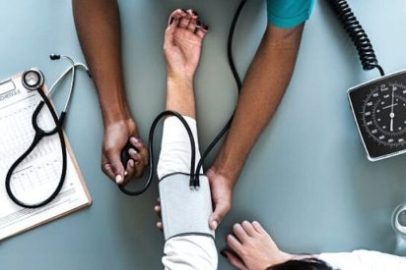In no other industry is the volume of data growing as rapidly as in medicine. However, to benefit from this, you need the right technology.
The amounts of data that we produce in our modern, digitized world are enormous: Today, we are already at one gigabyte per person per day, and the trend is still increasing. But the sector that is recording the most significant growth is not that of digital media or the manufacturing industry – it is medicine. According to forecasts, the amount of data available here will increase by 36 percent annually until 2025. There are almost no limits to the benefits that this means for the entire healthcare system and the patients themselves. But how can data help in medicine? And what is necessary to make large amounts of data usable at all?
In The Fight Against The Virus
The coronavirus, which is still keeping many parts of the world in suspense, is a current example of how medicine can benefit from big data. The Johns Hopkins University is one of the sources that – based, among other things, on data from the Robert Koch Institute – provides a coveted data set with the current number of Covid 19 cases. To analyze the numbers and derive appropriate recommendations for action.
However, they must first be processed. And this is where the power of big data comes into play, like Todd Crosslin, Head of Healthcare Strategy at the cloud data platform provider Snowflake, explains to us in an interview: “Data experts like the Hungarian company Starschema bundle data from different sources, optimize their quality and generate a uniform and coherent source of information, which we make available free of charge on our Snowflake Data Marketplace. This means that the data set is ready for immediate use by data scientists, epidemiologists, and journalists. The prepared dataset gives governments, for example, the opportunity to make data-supported decisions for civil emergency planning. “
Another critical link in this chain is the Corona warning app, which the federal government recently launched on the market. Although it was designed to trace infection chains reliably and keep the reproductive factor low, opinions are currently divided. For some, such an offer from the official side couldn’t come quickly enough. Others remain skeptical about the protection of their personal information. But it is also a fact that such an app can only develop its effect if enough people are involved and make their data available. To ensure a maximum level of security, anonymous crypto keys are used. The exchange occurs via Bluetooth between smartphones that come close to each other to trace any contact persons in the event of an infection.
Not Without My Data Protection
Similar anonymized methods could also be used, for example, about research into a vaccine. “For organizations developing life-saving vaccines or devices, there is tremendous value in collecting a wide variety of data about our health,” continues Todd Crosslin. “Technologies such as tokenization make it possible for people to provide medical information without personal data both securely and in large quantities via neutral tokens. In this way, anonymized data can be passed from healthcare providers to pharmaceutical and medical technology companies worldwide to drive innovation. “
In the same anonymized way, big data is already successfully helping to detect even rare diseases early and develop more effective diagnostic techniques. “In the past two or three years, AI algorithms based on large amounts of data have already achieved sensational success,” reports Alexander Thamm, founder and CEO of the AI and data science consultancy of the same name. “When it comes to the accuracy of diagnosing diseases such as malaria or skin cancer, the algorithms even beat medical experts or were at least as good. And they can often identify rare diseases faster and more precisely than doctors can. “
Also Read : How AI Can And Will Change Processes In SMEs
Unlimited Possibilities
But the advantages of big data in medicine go far beyond the current corona pandemic or other clinical severe pictures. Large amounts of data can help improve the health of every individual, even in the most minor and most everyday things – for example, through personalized apps like Endel or Yazio, the functionality of which we have also already looked at. “Almost any data source can be used for medical purposes,” says Todd Crosslin of Snowflake. “For weight loss, for example, it is essential to know how many steps a person takes every day, but given the corona pandemic, it is more important how close these steps are to other people. Therefore, the storage of location data can have a medical benefit. “
A central aspect limiting all the advantages of big data in medicine is always the question of the best possible storage that enables agile access for everyone who needs to analyze it and draw essential insights from it. “At the latest, when an organization has petabytes of anonymous data, it needs a suitable place to store it and a secure way to connect the data to other sources,” explains Todd Crosslin in an interview. “Cloud data platforms have now established themselves as a popular method of solving this problem. With their help, organizations can securely store, analyze and share extensive data sets created in almost real-time. “
Numerous branches of industry are now benefiting from the advantages that cloud data platforms bring with them because they need fast, scalable, and, above all, secure solutions that exist in the retail and the media sector or industry. In medicine, however, such modern technologies not only have the option of optimizing supply chains to the maximum – they can save lives. And that is a fact from which we will benefit significantly in the future, not only in the fight against the coronavirus.

